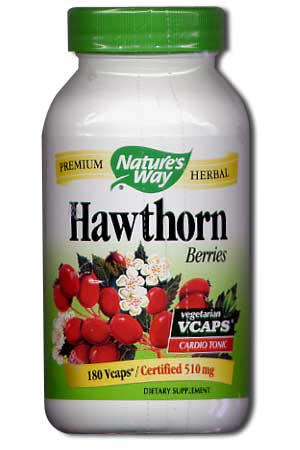The Monthly Wort
________________________
The Monthly Wort will provide readers with detailed descriptions of specifically chosen herbs (aka “wort”, meaning a useful herb), splitting it into 4 categories over the span of the month. Herbal History, Medicinal Uses, Magical Uses and Growing/Harvesting. In order to get the full scope of each plant, stay tuned every week as we delve into spiritual and practical experience of Herbalism.
I have a feeling that this blog will be much like that of Blackthorn’s Part 2, which – in the Monthly Wort – is about the medicinal value of the plant in question. The similarity I’m talking about, if you haven’t read the other blog, is that there isn’t a whole lot of foundation as far as the safe use of Hawthorn in herbal medicine. All that I can say as a preface to this blog is that Hawthorn is POSSIBLY SAFE for adults, although the research has only been conducted in short terms, rather than long term usage (in the US).
Dioscorides
Questionable Medicine - Or is it?
Not to say that it hasn’t been used as a medicine. Hawthorn is one of the oldest known medicinal plants, noted as being good for the heart by the Greek herbalist Dioscorides somewhere around the first century. If you think that might be a bit too archaic to rely on as fact, a Swiss physician, Paracelsus, found similar results in his studies during the German renaissance. Speaking of Germans, by the by, the Commission E branch of the German government endorsed Hawthorn as a viable herbal treatment. Even Pharmacognosy Review wrote,
“Results recorded from clinical trials, experiences of professionally qualified medical herbalists and the low-negligible incidence of side-effects experienced by patients would indicate that Crataegus preparations holds significant potential as a useful remedy in their treatment of CVD [Cardiovascular Disorder].”
Despite the lack of foundation from the FDA’s perspective, Hawthorn can still be found as an herbal supplement in most health food stores
That being said, there are different laws and restrictions based on seperate countries as far as the suggested safe use of herbs. According to Christopher Hobbs, Hawthorn is an official herbal pharmaceutical in countries such as Brazil, China, France, Germany, Russia and Switzerland. Obviously in America, we lean more towards pharmaceutical drugs and most herbal or “natural” treatments aren’t found to be viable according to the FDA. I would only have to ask, whose opinion do you trust more?
More evidence of safe medicinal use can be found in 17th century physician entries, like that of Henri Leclerc (French). The British Homeopathic Review wrote about a Doctor Green from Ennis, Ireland, saying,
“[He]... for many years had a reputation for the cure of heart disease that caused patients to flock to him from all parts of the United Kingdom. He cured the most of them and amassed considerable wealth by means of his secret. For, contrary to the code, he, though a physician in good standing, refused to reveal the remedy to his professional brethren. After his death… [in 1894], his daughter, a Mrs. Graham, revealed the name of the remey her father had used so successfully. It is Crataegus oxycanthus…”
I do love a good secret remedy, don’t you? Nonetheless, this doesn’t exactly prove his methods as successful, considering there’s no evidence beyond word of mouth that Hawthorn was the plant that played a role in the doctor’s success. It’s only speculation.
Image is from a VERY interesting blog that covers a few case studies using Hawthorn, found HERE
What does Hawthorn Help?
Herbalists have suggested that Hawthorn is used mostly for diseases of the heart and blood vessels, mainly in that it can help dilate coronary arteries, which - in turn - can help lower blood pressure, therein eases stress placed on the heart. Issues like congestive heart failure that can occur due to strain that makes it difficult for your body to be supplied with blood, which then returns to the heart and can create swelling or buildup – it is believed that Hawthorn’s diuretic properties can aid in reducing such buildup.
Some of the other related issues Hawthorn is said to relieve are:
Aiding symptoms caused by heart and blood diseases
Chest pain
Congestive Heart Failure (CHF)
Low blood pressure
High blood pressure
Atherosclerosis (hardening of the arteries)
Arrhythmia
Irregular heartbeat
High cholesterol
There is also speculation that Hawthorn can help with digestive complaints (stomach pain, indigestion, diarrhea), as well as anxiety (probably due to its use in easing heart issues). It has been used to treat tapeworm, although I haven’t found much more than a few frail sources on that.
The larger explanation for Hawthorn’s possible benefit come from the bioflavonoids, proanthrocyanidins and other antioxidants found in the plant. The ability it purportedly has at inhibiting angiotensin-converting enzymes (ACE) is believed to improve circulation in the arms and legs by reducing the artery resistance, much like what it does to the heart. Herbal Supplement Resource notes more active ingredients: Hawthorn contains around 1 [to] 2 [percent] flavonoids, oligomeric proanthocyanidins (1-3%), saponins, phenolic acids (chlorogenic acid, caffeic acid), 2-(2-Phenylethyl) chromone derivatives (in the flowers, leaves and buds), amine (phenethylamine, metoksyfenetylamin, dopamine, acetylcholine and tyramine) and triterpenes based on ursolic acid and oleanolic acid.
Side Effects and Warnings
Now we’re getting to the meat of where you might tend to be more wary of Hawthorn. For some people, Hawthorn can cause stomach upset/nausea, fatigue, sweating, headaches/dizziness, nosebleeds, agitation, heart palpitations and insomnia, just to name a few. An overdose can cause cardiac arrhythmia and low blood pressure.
It can also interact negatively with other medications. Here is a list:
Pregnancy/Breast Feeding: Not worth the risk. Not enough research has been done to confidently prescribe Hawthorn to a woman who is pregnant.
Heart Disease/Blood Pressure Medication: This is where my signature warning to ask a doctor before using an herb comes in. Hawthorn, while supposedly good for the heart, can interact with certain heart medications and actually make your symptoms worse, some of which could result in death.
Pre- and Post-Surgery: Your risk of bleeding from or during surgery is greatly increased by taking Hawthorn, as it might slow the blood clotting. The recommended time to stop taking Hawthorn before a surgery is at least 2 weeks.
Other Noted Interactive Drugs:
- Nitrates
- Male Sexual Dysfunction drugs
- Digoxin
Do Your Research!
The most important thing to remember is that, even if I or other bloggers have done their research, you should always consult your doctor before taking any herbal medications. If you are seeing an herbalist, there is nothing wrong with making sure they are properly certified and experienced. This is, after all, your body and your life.
Ahhhh, Nature…
On a lighter note, Hawthorn is a favorite of many animal species! As great pollinators, Hawthorn draws nectar-feeding insects in the early season and also provides food for the Lepidoptera larvae species, specifically the eggar moth. With the way the tree grows, it also provides excellent shelter for small mammals and birds, who eat the berries and, in turn, disperse the seeds through their droppings. Nothing quite like the circle of life, eh?
That’s it for medicine, folks. Join us soon for the Magic of Hawthorn blog! I had to take a small break between posts, so part 2 and 3 are going to be posted in the same week. I hope you stay tuned.








